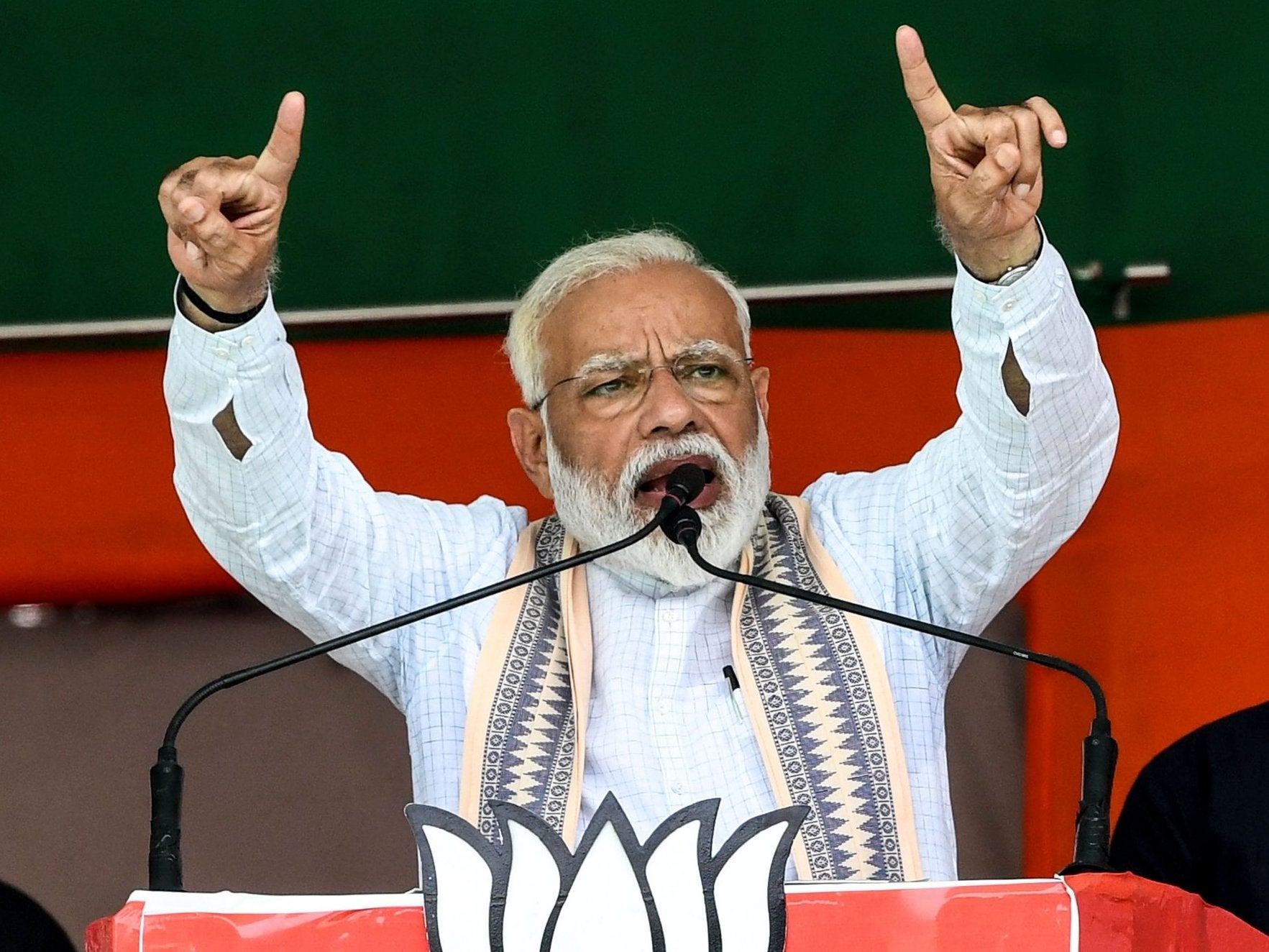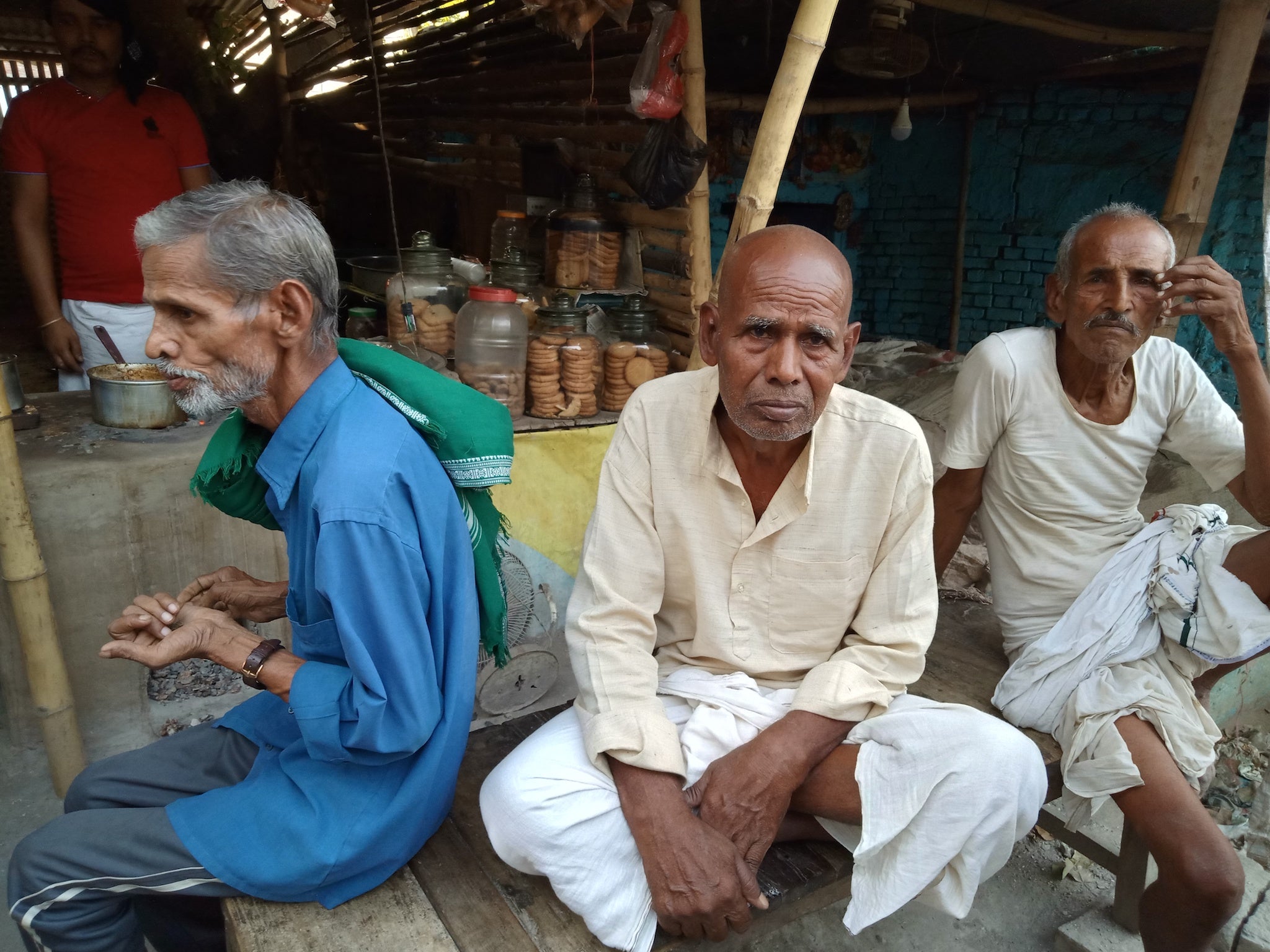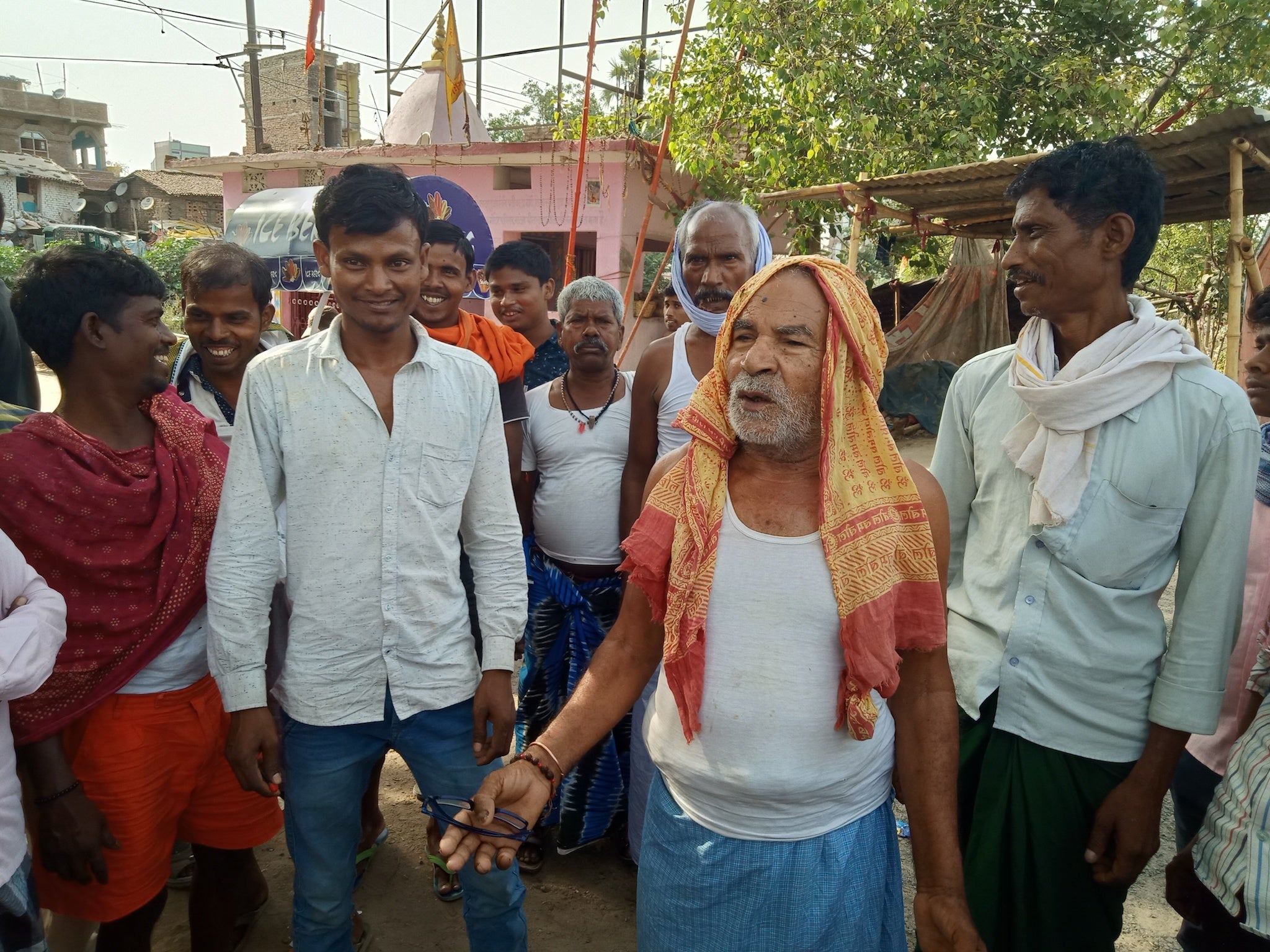Will India’s ‘lawless state’ decide the fate of its general election?
Bihar languishes at the bottom of the poverty table despite Narendra Modi's promises of jobs and development. So will voters in this bellwether state give him a second chance?

Your support helps us to tell the story
This election is still a dead heat, according to most polls. In a fight with such wafer-thin margins, we need reporters on the ground talking to the people Trump and Harris are courting. Your support allows us to keep sending journalists to the story.
The Independent is trusted by 27 million Americans from across the entire political spectrum every month. Unlike many other quality news outlets, we choose not to lock you out of our reporting and analysis with paywalls. But quality journalism must still be paid for.
Help us keep bring these critical stories to light. Your support makes all the difference.
With voting drawing to a close on Sunday in India’s marathon general election, attention turns to the few remaining seats that could hold the key to the country’s future.
Of the 59 out of 543 constituencies yet to cast their ballots, eight are in the densely populated, deeply impoverished state of Bihar in India’s east.
The bellwether state was among the so-called “Hindi heartlands” dominated by Narendra Modi’s Bharatiya Janata Party (BJP) in 2014, as it won the first outright majority in parliament in decades.
Bihar was once dubbed “the lawless state” due to its lack of development and high crime rate, and remains the country’s poorest state or territory by average income despite the prime minister’s promises of jobs and economic growth.
At the centre of Patna, the state capital and its only really developed metropolis, lies a vast, dusty parade ground called Gandhi Maidan. It is said that he who can fill the 300,000-plus capacity, 60-acre square will rule the state – perhaps even the country.
Mr Modi did just that when he came here in 2014, as the “Modi wave” swept the nation in the last general election. Yet when he visited two weeks ago in a set-piece event many days in the planning, the symbolic Maidan was only half full – one regional party leader claimed he could get a bigger crowd “if I stopped at a roadside shop”.
Of the 40 seats up for grabs in Bihar, there are some that have correctly gone the way of the winning party at the centre of government for five general elections in a row.
And so fierce is the political battleground here that the BJP is fielding four union ministers among its candidates, while the main opposition Congress party has successfully forged a formidable “grand coalition” that – if it wins the state – will show the potential power an “anyone-but-Modi” message can have.
“Step outside of the cities and you see the anger. The farmers, the jobless youth, they are no longer getting carried away by the propaganda of the honourable prime minister,” says self-proclaimed star Congress campaigner Shatrughan Sinha, a former Bollywood actor and minister.
Mr Sinha, a BJP defector who is now competing against Mr Modi’s justice minister Ravi Shankar Prasad for the key constituency of Patna Sahib on Sunday, says the people of Bihar have been failed by the Modi administration.
“Why does Bihar still remain behind so many other states? Was it the fault of our people, and our younger generation? You cannot sell people hopes and dreams and then, when they expect those dreams to come true, give them only rhetoric,” he tells The Independent.

Like India as a whole, Bihar’s economy relies heavily on its agricultural sector, and farmers – many of whom have reported increased financial stresses in recent years – make up a key part of the state’s demography.
Just a few minutes’ drive outside the old city of Patna, the concrete buildings fall away and the roads wind between small fields growing rice, potatoes and onions.
At a market near the village of Kothiya, farmers gathered at a tea stand complain of the squeeze Mr Modi’s monetary policies – from the devaluation of large banknotes in 2016 to the introduction of a new general sales tax (GST) – have put on their day-to-day lives.
“Narendra Modi is killing us,” says Ram Babu Yadav, a 60-year-old farmer who was swept along by the wave and voted BJP in 2014. He says farmer suicides, a phenomenon that has drawn great attention elsewhere in India, are happening in Bihar too but get less attention because “they are not hanging themselves, they are taking poison and passing away at home”.
“Medicine prices are going up while the money we get for produce goes down. [Modi] promised us Rs150,000 (£1,700) in everyone’s account, he promised to bring back ‘black money’ from abroad. He did not deliver,” Mr Yadav says. He will vote for Congress this time around.
Deepak Kumar, a first-time voter at 19 years old, comes from a family of farmers and says he has seen first hand the strain put on his father. He too plans to vote Congress. “Narendra Modi has done nothing for farmers in his first five years. Why should we expect anything different in the next five years?”
Jobs, development and economic growth are issues that resonate across caste and religion in the state. But voters within Patna city itself, from middle class business owners to daily wage labourers, are just as likely to bring up another election priority – national security.
Mr Modi has won praise for what is seen as his tough stance against Pakistan after the Pulwama bombing killed 40 Indian soldiers in Kashmir in February, and the prime minister has since dubbed himself the nation’s “chowkidar” – its watchman.
“In 50 to 60 years of Congress government, nobody ever did anything to retaliate against Pakistan. Now under Narendra Modi we have taken the attack to them,” says Shyam Babu, a 50-year-old household goods trader in the city.
“I am happy – it’s only the unemployment that remains an issue. I will give him one more chance [to fix that],” he says.
Along the streets and on shopfronts throughout old Patna, the orange and green lotus-flower flag of the BJP is everywhere to be seen. His supporters here may lack the unfettered enthusiasm they once had for Mr Modi, but they remain the most visible backers of any single party.

At the BJP’s main headquarters for the state, the party leadership remains confident that they can see off the challenge of the opposition coalition.
Devesh Kumar, vice-president of BJP Bihar, says the party is happy to campaign based on the prime minister’s track record. He cites improvements in cleanliness, higher education and “huge strides” made on law and order. “I’m not saying that we have eliminated crime altogether, but we are trying and the situation is improving every day.”
Mr Kumar describes Bihar as “a very politically aware and historically important state”. “Historically, this is one of the states that decides who is in power in New Delhi,” he says, adding that it would be “no exaggeration” to say the party, alongside its major regional ally, could take all 40 of the seats available.
While many eyes will be on Bihar for Sunday’s vote, as well as Uttar Pradesh, Punjab and West Bengal where significant numbers of seats are also being contested, attention will then turn to the first exit polls released shortly after the last polling stations close at 18.00 local time [12.30 GMT]. Though notoriously unreliable, they may give an indication of whether Mr Modi has done enough to secure a second term. Full counting and release of results takes place on Thursday.
Subscribe to Independent Premium to bookmark this article
Want to bookmark your favourite articles and stories to read or reference later? Start your Independent Premium subscription today.
Join our commenting forum
Join thought-provoking conversations, follow other Independent readers and see their replies
Comments